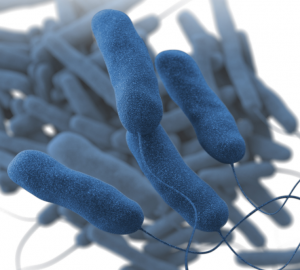NewsDesk @bactiman63
In Latvia, the Center for Disease Prevention and Control (CPKC, SPKC) has launched an epidemiological investigation at the Latvian Cancer Center after at least two patients with Legionnaires’ disease have already been identified in the hospital.

Image/CDC
The patients with Legionnaires’ disease were in different wards.
Legionella bacteria were discovered after laboratory analysis of hospital water samples.
An epidemiological investigation is currently ongoing.
Legionella bacteria are found naturally in freshwater environments, such as lakes and streams. Legionella can become a health concern when it grows and spreads in human-made building water systems such as cooling towers used in air conditioning systems, hot tubs, fountains, and large plumbing systems. Legionnaires’ disease, which is a type of pneumonia, may result when individuals breathe in droplets of water that contain the bacteria. Symptoms include cough, shortness of breath, fever, muscle aches, and headaches.
Subscribe to Outbreak News TV on YouTube
Most healthy people exposed to Legionella do not get sick. Those at increased risk of getting sick are people age 50 years and older; current or former smokers; people with a chronic lung disease, weak immune systems, or cancer; and people with underlying illnesses such as diabetes, kidney failure, or liver failure.
- Brazil: Dengue, chikungunya and Zika in Minas Gerais during the 1st eight weeks of 2023
- Mozambique commences cholera vaccination drive as outbreak tops 5,000 cases
- Hungary reports two Zika virus infections in travelers to Thailand
- Cambodia Health officials: H5N1 situation is now under control
- Philippines: ‘Rising cases of amebiasis’ in San Carlos City prompts State of health of emergency declaration
- Buenos Aires province: Leptospirosis and salmonellosis were confirmed in cases of acute diarrhea
- Ghana reports two Lassa fever cases in residents of Accra
- CDC issues travel notice for Paraguay due to chikungunya outbreak

